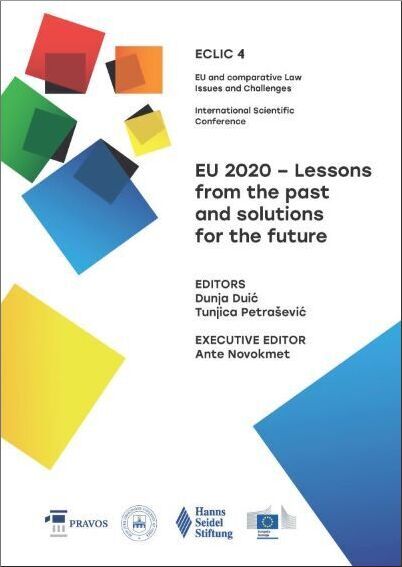RESPONSIBILITY FOR HUMAN RIGHTS VIOLATIONS OF PRIVATE MILITARY AND SECURITY COMPANIES ON EU BORDERS
A CASE STUDY OF THE CONTRACTS OF THE EUROPEAN ASYLUM SUPPORT OFFICE
DOI:
https://doi.org/10.25234/eclic/11900Abstract
The present contribution addresses the question of attribution of private conduct to international organizations, more specifically whether the conduct of private military and security companies can be equated with that of the European Union in connection with migration and border control. The paper also incorporates the analysis of two contracts concluded between a private company and the European Asylum Support Office for provision of security services for the premises of the institution and for hotspots in Greece. The main findings of the paper are that while there are a number of ways to attribute the conduct of private entities to international organizations such as exercising elements of governmental authority or effective control over specific operations of private persons, there are inherent difficulties within the procedural aspects of proving such an attributional link. In addition to this, in spite of contrary scholarly opinion, this paper asserts that private military and security companies do not play a significant role in implementing the European Agenda on Migration, at least on the EU level. Conversely, the services they provide are not unique to migration control, but necessary for the effective operation of EASO. The attribution of the examined conduct is not possible through exercising elements of governmental authority, and proving effective control for a specific operation would also encounter considerable difficulties.
Downloads
Published
How to Cite
Issue
Section
License
Copyright (c) 2020 Bence Kis Kelemen

This work is licensed under a Creative Commons Attribution-NonCommercial 4.0 International License.
Authors retain the copyright on the papers published in the Journal, but grant the right of first publication to the Journal. Papers accepted for publication or already published in ECLIC of the Faculty of Law in Osijek may be published by the author(s) in other publications only with proper notice of its previous publication in ECLIC.


